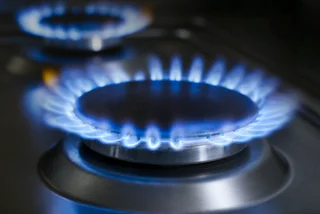The Czech Republic saw its lowest natural gas consumption since 1994 last year, according to a recent analysis by consulting company EGÚ Brno provided to Czech News Agency. The country's gas consumption decreased by seven percent compared to the previous year, amounting to 7.1 billion cubic meters.
The decline in gas consumption was primarily driven by reduced demand from gas-fired power plants, as well as decreased consumption by households and industries. Additionally, the country's high storage capacity contributed to lower gas imports. In 2023, the Czech Republic received 7.4 billion cubic meters of gas, with less than a billion cubic meters leaving the country.
PARTNER ARTICLE
The analysis also pointed out that gas flow through the Czech gas system in 2023 was six times lower than the previous year. The transit role of the Czech Republic as a gas corridor was interrupted due to the non-delivery of gas from Russia to EU countries, significantly impacting gas flow.
Most of the gas imported into the Czech Republic in 2023 came via Germany from sources such as Norway and liquefied natural gas terminals on the North Sea coast (Belgium, the Netherlands, and Germany).
From October, Russian gas purchased on the Slovak and Austrian markets also began flowing into the Czech Republic, constituting approximately seven percent of the total annual domestic consumption.
Gas consumption within the European Union as a whole also experienced a decrease of around five percent compared to the previous year. The reduced gas consumption led to a significant decline in gas imports into the EU. The mild winter in 2023 and ample storage capacity allowed for a 16 percent reduction, equivalent to about 60 billion cubic meters, in gas imports compared to 2022.
The lower demand for gas imports has also had a positive impact on gas prices in Europe. The average price of gas with next-month delivery at the main European TTF trading point in 2023 was approximately 41 euros per MWh, representing a 69 percent decrease compared to the previous year.
The availability of imported liquefied natural gas, which arrived at northwestern European ports at an average price of 38 euros per MWh, also contributed to the decline in the European market.
Liquefied natural gas supplies were the main source of gas for Europe in 2023, with a 43 percent share in all deliveries. The majority of these supplies came from the USA, followed by Africa, the Middle East, and Russia.
Norwegian gas, as the second most important resource in Europe, experienced a 15 percent decrease in imports, amounting to 106 billion cubic meters of gas. On the other hand, the import of pipeline gas from Russia significantly decreased by 80 percent, from 63 billion cubic meters in 2022 to 26 billion cubic meters in 2023.
As a result, the share of Russian gas in EU and British imports dropped to 15 percent. Currently, the only direct buyers of Russian pipeline gas in the EU are countries with valid long-term contracts, including Austria, Slovakia, and Hungary.












 Reading time: 2 minutes
Reading time: 2 minutes 




























